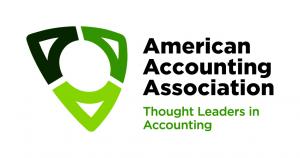Study: EV Incentives May Hit Low-Income Buyers with Unexpected Tax Bill
“Of the 15 states that offer financial incentives to EV buyers, 13 of them offer those incentives in the form of rebates,” says James Lawson, an assistant professor of accounting at Bucknell University and co-author of the paper on EV tax incentives. “Those rebates may need to be reported to the federal government as taxable income, which many taxpayers don’t know. So, when it’s tax time, taxpayers may find themselves having to report up to $7,500 in additional income.”
“This is particularly problematic for low-income buyers,” says Vernan Rivera, co-author of the paper and an assistant professor of accounting at Bucknell. “The increase in reported income for low-income households may make them ineligible for programs such as the Earned Income Tax Credit and the Child Tax Credit, as well as repayment requirements for income-based benefits such as the Supplemental Nutrition Assistance Program (SNAP). This is an important point because some state incentive programs include rebates aimed specifically at low-income taxpayers. And taxpayers often don’t learn about these consequences until they file their taxes the following year.”
For this study, the researchers looked at state and federal incentive programs as well as publicly-available data from nine states – including California, Illinois and New York – regarding who is making use of these programs. Their analysis focused on the extent to which state and federal EV incentive programs advanced policy goals, as well as whether there were any unintended consequences associated with those incentives.
“While our paper does analyze federal incentive programs, the future of those incentives – including domestic manufacturing requirements added by the Inflation Reduction Act – is uncertain,” Lawson says. “However, state incentive programs are not tied to the federal incentives.
“We also found tremendous variability in how states talk to consumers about potential tax liability,” Lawson says. “Pennsylvania says rebates should be claimed as income. California says rebates should not be claimed as income. Other states provide little or no guidance. It can be confusing for consumers.”
“We also found that incentive programs are not being used primarily by residents of high-pollution areas, suggesting the programs are making limited progress toward related policy goals,” Rivera says.
“There are two clear take-aways. First, we need legislation specifying that these rebates should not be claimed as income. Second, we need consistency between state and federal programs regarding which EVs qualify for these incentives.”
The paper, “Driving ESG: Tax Policy and Electric Vehicle Incentives,” is published in the American Tax Association’s Journal of Legal Tax Research, which is under the umbrella of the American Accounting Association. The paper was co-authored by Raquel Alexander, a professor of accounting at Bucknell; and by Curtis Nicholls, the Kiken Family Chair in Management at Bucknell.
xxx
The American Accounting Association (www.aaahq.org) is the largest community of accountants in academia. Founded in 1916, we have a rich and reputable history built on leading-edge research and publications. The diversity of our membership creates a fertile environment for collaboration and innovation. Collectively, we shape the future of accounting through teaching, research and a powerful network, ensuring our position as thought leaders in accounting.
David Twiddy
American Accounting Association
+1 941-556-4115
email us here
Legal Disclaimer:
EIN Presswire provides this news content "as is" without warranty of any kind. We do not accept any responsibility or liability for the accuracy, content, images, videos, licenses, completeness, legality, or reliability of the information contained in this article. If you have any complaints or copyright issues related to this article, kindly contact the author above.
Paula Ruth Jones Debuts ‘Mark the Bully Shark 2,’ a Splashy Lesson on Jealousy
IBN Technologies Unlocks the Full Benefits of Civil Engineering with Scalable Support
Outsource Tax Preparation Services Prove Effective for High-Volume Submissions
Więcej ważnych informacji
 Jedynka Newserii
Jedynka Newserii

 Jedynka Newserii
Jedynka Newserii

Polityka

W tym tygodniu Komisja Europejska przedstawi projekt budżetu na lata 2028–2034. To będzie pierwsza długoletnia perspektywa czasu wojny
16 lipca Komisja Europejska przedstawi swój pomysł na budżet w kolejnej siedmioletniej perspektywie. Projekt ma przewidywać mniej programów, większy udział kwot niezaplanowanych, a także mechanizmy i rezerwy, które umożliwią szybszą i bardziej elastyczną reakcję na zmieniające się potrzeby. Więcej w nim będzie również środków przewidzianych na wzmocnienie bezpieczeństwa. W maju Parlament Europejski odrzucił w głosowaniu propozycję KE, by budżety przewidziane na okres po roku 2027 konstruować tak jak KPO.
Polityka
P. Müller: Wnioski z ludobójstwa w Srebrenicy szczególnie aktualne w kontekście ukraińskim. Społeczność międzynarodowa nie może przymykać oczu

W ubiegłym tygodniu obchodzono 30. rocznicę ludobójstwa w Srebrenicy, gdzie z rąk Serbów w lipcu 1995 roku zginęło ponad 8 tys. bośniackich mężczyzn i chłopców. To jeden z najciemniejszych rozdziałów najnowszej historii Europy – podkreślali szefowie instytucji UE. – To także lekcja dla społeczności międzynarodowej, która nabiera szczególnego znaczenia w kontekście agresji Rosji na Ukrainę – mówi Piotr Müller, europoseł z PiS.
Media i PR
Parlament Europejski wzywa do większej ochrony wolności dziennikarzy. Wiceprzewodnicząca: media mają pełnić funkcję kontrolną, a niektórym rządom to się nie podoba

8 sierpnia br. w państwach członkowskich UE zacznie obowiązywać europejski akt o wolności mediów. Przepisy rozporządzenia mają chronić pluralizm i niezależność mediów. Jak wynika z nowego raportu KE dotyczącego praworządności, wciąż jest to obszar, w którym jest dużo zagrożeń. Również Parlament Europejski wzywa kraje członkowskie do intensywnych wysiłków na rzecz wolności mediów i ochrony dziennikarzy.
Partner serwisu
Szkolenia

Akademia Newserii
Akademia Newserii to projekt, w ramach którego najlepsi polscy dziennikarze biznesowi, giełdowi oraz lifestylowi, a także szkoleniowcy z wieloletnim doświadczeniem dzielą się swoją wiedzą nt. pracy z mediami.




![Część środków z Planu Społeczno-Klimatycznego trafi na walkę z ubóstwem transportowym. Organizacje branżowe apelują o zmianę priorytetowych projektów [DEPESZA]](https://www.newseria.pl/files/1097841585/rower3,w_85,_small.jpg)




.gif)

 |
| |
| |
|